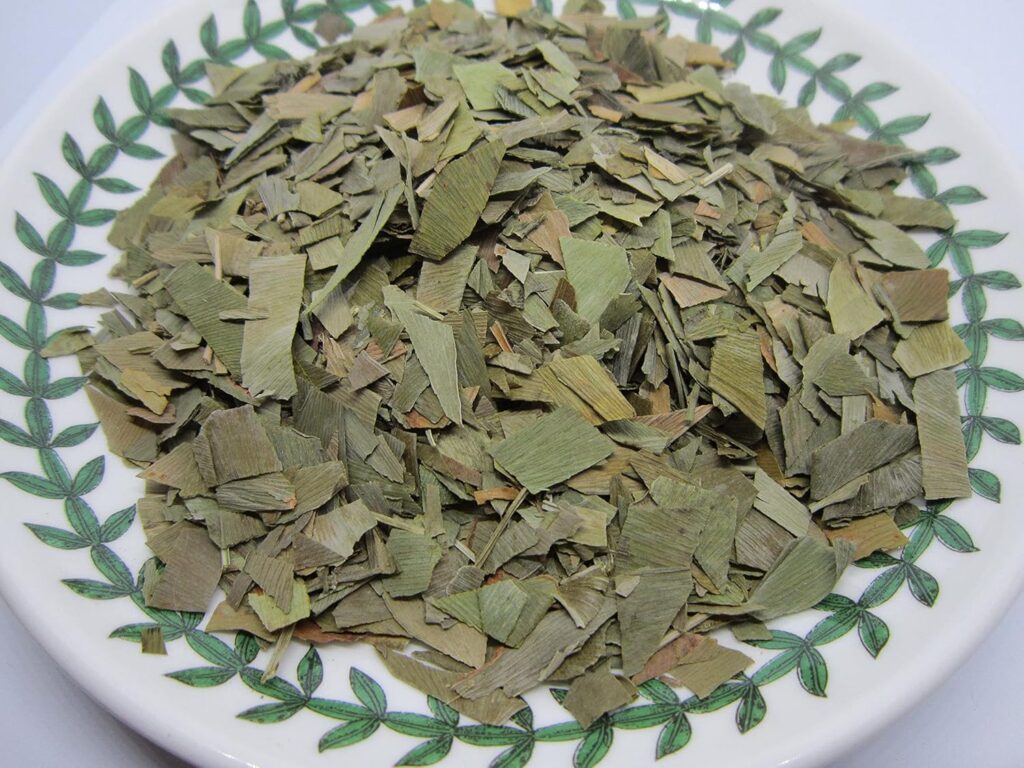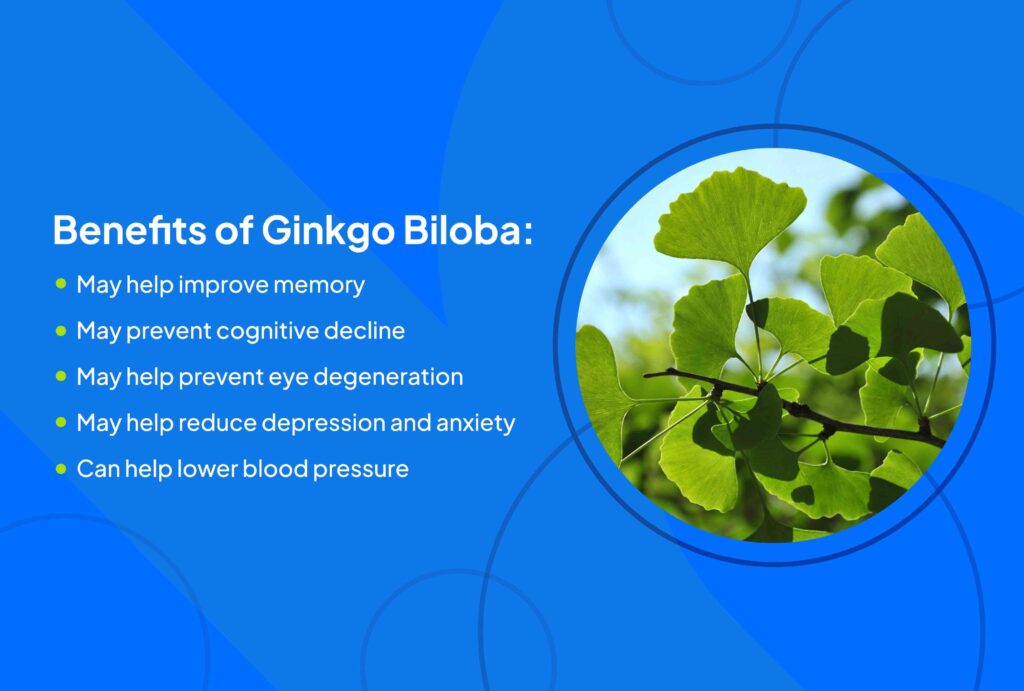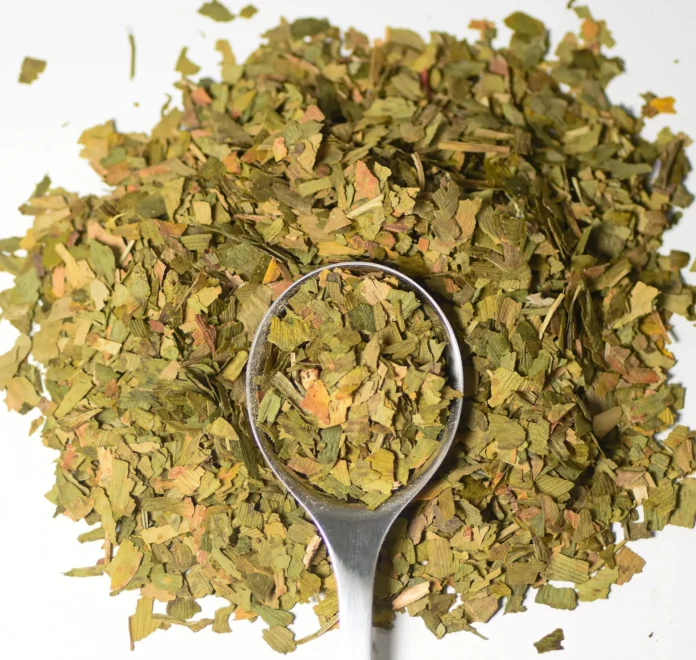
Introduction
Ginkgo Biloba, one of the oldest living tree species, has long been revered for its potential medicinal benefits. Known for its distinctive fan-shaped leaves, Ginkgo Biloba has been used for centuries in traditional medicine to promote cognitive function, improve circulation, and alleviate various health issues. In this article, we will explore the forms in which Ginkgo Biloba is commonly available, its many benefits, and potential side effects to help you understand whether it might be the right supplement for you.
Forms of Ginkgo Biloba
Ginkgo Biloba is available in several forms to suit different preferences and purposes:
- Dry Leaves: One of the most natural forms of Ginkgo Biloba, dry leaves offer a more traditional approach. Premium loose-leaf Ginkgo Biloba ensures that you’re getting a 100% natural product with minimal processing. This form is often steeped in hot water to make tea, which is popular for its health benefits.
- Ginkgo Biloba Extracts: Ginkgo Biloba is also commonly found in concentrated liquid or powdered form. These extracts are more potent and easier to dose than dried leaves. They are usually standardized to contain specific percentages of active ingredients such as flavonoids and terpenoids.
- Ginkgo Biloba Capsules or Tablets: For those who prefer convenience, Ginkgo Biloba is often available in pre-measured capsules or tablets. These provide a precise dosage, making it easy to incorporate into your daily routine.
- Ginkgo Biloba Tea: Another popular way to consume Ginkgo Biloba is through tea. This is made by steeping dried Ginkgo Biloba leaves in hot water. Ginkgo Biloba tea is known for its mild, earthy flavor and is commonly consumed for its cognitive-enhancing benefits.
Health Benefits of Ginkgo Biloba
Ginkgo Biloba is renowned for its many potential health benefits, with the following being the most widely recognized:

- Improved Cognitive Function: Perhaps the most famous benefit of Ginkgo Biloba is its ability to support brain health. It is believed to improve memory, focus, and cognitive function by increasing blood flow to the brain and protecting nerve cells from oxidative damage. Some studies suggest that it may help improve symptoms of dementia and Alzheimer’s disease.
- Enhanced Circulation: Ginkgo Biloba may help to improve blood circulation by dilating blood vessels and reducing blood viscosity. This can result in better oxygenation and nutrient delivery to vital organs and tissues.
- Antioxidant Properties: The active compounds in Ginkgo Biloba, such as flavonoids and terpenoids, have strong antioxidant effects. These antioxidants help neutralize harmful free radicals, which can damage cells and contribute to aging and various diseases.
- Mood and Anxiety Reduction: Some research suggests that Ginkgo Biloba may help in alleviating symptoms of anxiety and depression by supporting brain function and increasing serotonin levels. It may help reduce feelings of anxiety and promote overall mental well-being.
- Eye Health: Due to its ability to improve blood circulation, Ginkgo Biloba is sometimes used to support eye health, especially in individuals with glaucoma or age-related macular degeneration (AMD).
- Tinnitus Relief: Ginkgo Biloba is sometimes used as a treatment for tinnitus (ringing in the ears). While research is inconclusive, some individuals report experiencing relief from the constant ringing after using Ginkgo Biloba.
Potential Side Effects of Ginkgo Biloba
While Ginkgo Biloba is generally considered safe for most individuals when taken in moderate amounts, it can cause side effects in some people, especially when taken in excess or alongside other medications. Some of the potential side effects include:

- Gastrointestinal Issues: Some users experience digestive issues such as nausea, upset stomach, or diarrhea when taking Ginkgo Biloba, especially when consumed in large quantities.
- Headaches: Ginkgo Biloba may cause headaches in some individuals, particularly when taken in high doses. If you experience persistent or severe headaches, it is advised to stop using Ginkgo Biloba and consult a healthcare provider.
- Dizziness: Because Ginkgo Biloba can enhance circulation and affect blood pressure, some individuals may experience dizziness or lightheadedness, particularly when standing up quickly.
- Allergic Reactions: In rare cases, individuals may have an allergic reaction to Ginkgo Biloba. Symptoms can include rash, swelling, or difficulty breathing. If you suspect an allergic reaction, seek medical attention immediately.
- Bleeding Risk: Ginkgo Biloba can potentially interact with blood-thinning medications (such as warfarin or aspirin), increasing the risk of bleeding. It is essential to consult with a healthcare provider if you are on anticoagulant medications before taking Ginkgo Biloba.
- Interaction with Other Medications: Ginkgo Biloba can interact with several medications, including antidepressants, antiplatelet drugs, and medications for high blood pressure. Always consult a healthcare provider before taking Ginkgo Biloba if you are on other medications.
This Article is for Basic Information. Contact a professional doctor before using it.
HAKEEM KARAMAT ULLAH
+923090560000




